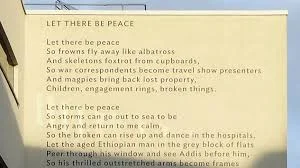It’s always around this time of year that my love of reading is fully resurrected. The joy of realizing that - when in holiday mode at least - I can race through the neglected pile of books and magazine cut outs resembling an unwieldy tower on my bedside table.
I’ve recently started a two-pronged approach to reading, which has zapped that bad habit I had of starting a book, only to cast it aside when I fancied something different – and that’s to have two reads simultaneously on-the-go: that page-turning bestseller, coupled with a more learned option to pore over. Happily, embracing this bookish yin-yang balance has boosted the number of acknowledgements pages I’ve since clapped eyes on.
There are particular times in life that I turn to complementary modes of writing. The balmy, lazy days of summer suit carefree reads charting first loves and confirming comfortable conclusions, but the bigger moments – the highest highs and lowest lows; births, deaths, unions, can only be matched in words, I think, by poetry.
And it’s the work of the official poet of the 2012 London Olympics, Lemn Sissay that I’ve recently been delighting in. He believes poetry to have a sacred dimension, acting as a bridge between the physical and the spiritual - hence our leaning on it at christenings, weddings and funerals and our finding of it across all religious traditions.
One of Lemn’s most powerful poems is called, Let There Be Peace – it’s etched into the walls of Manchester and Huddersfield universities and was recited at the Manchester Together with One Voice event that marked a year since the devastating arena attack there.
It reads like the Beatitudes – the blessings in the Bible that reimagine the world as it could be. He visualizes tears evaporating to “form clouds… and fall into reservoirs of drinking water”, a time when “war correspondents become travel show presenters” and “harsh memories burst into fireworks that melt in the dark pupils of a child’s eyes.”
Not only is Lemn so inspiring as the creator of such artistic gems but he also encourages me to get my own imagination in gear.
And as the ever sage Alistair McGrath - both a theologian and a scientist - wrote, “while we should never neglect the importance of reason and understanding, we must also value the power of imagination as the gate-keeper of the human soul.”
